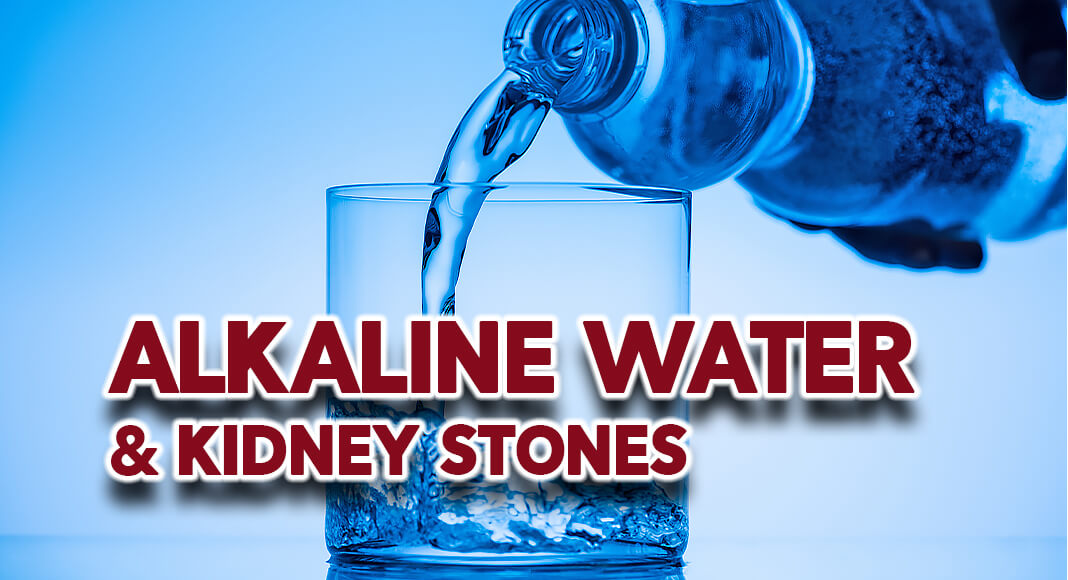
Mega Doctor News
By Wolters Kluwer Health: Lippincott
Newswise — Waltham — Bottled water marketed as “alkaline water” is unlikely to be an effective alternative for prevention of recurrent urinary stones, reports a study in the January issue of The Journal of Urology®, an Official Journal of the American Urological Association (AUA). The journal is published in the Lippincott portfolio by Wolters Kluwer.
“While alkaline water products have a higher pH than regular water, they have a negligible alkali content – which suggests that they can’t raise urine pH enough to affect the development of kidney and other urinary stones,” comments senior author Roshan M. Patel, MD, of University of California, Irvine.
Alkaline water as alternative to prescription drugs for stone prevention?
Alkaline water, sometimes called high pH water, is an increasingly popular category of bottled water. Compared to tap water, with a typical pH around 7.5, alkaline water is manufactured to have a higher (more alkaline) pH – in the range of 8 to 10.
Consumption and sales of alkaline water have increased sharply in recent years. Proponents claim various health benefits, including improved hydration and increased urinary pH. Raising pH is a key strategy to prevent formation of certain types of urinary stones (uric acid or cystine) in patients with previous stones. (The Urology Care Foundation™ offers information on kidney stone prevention.)
Potassium citrate tablets are commonly prescribed to prevent recurrent stones. However, many patients do not follow recommended treatment – often related to the need to take large pills several times per day. If alkaline water could raise urinary pH, it might be an attractive alternative for stone prevention.
To assess the potential for high pH water to prevent urinary stones, Dr. Patel’s team measured the pH of five commercially available alkaline water products. They also reviewed published data on other types of drinks and over-the-counter products with the potential to raise urinary pH.
Despite higher pH, alkaline water has ‘trivial’ alkali content
The five brands tested in the study had a similar pH, in a narrow range around 10. One product contained a small amount of citrate, which was not listed on the product label. Otherwise, the tested alkaline waters had no organic anions that can be metabolized to alkali by the body – as supplied by potassium citrate tablets.
At a pH of 10, the tested products would have an alkali content of just 0.1 milliequivalent per liter (mEq/L). That’s a “trivial” concentration compared to the body’s typical metabolic acid production of 40 to 100 mEq/L per day, according to the authors.
In contrast, some other commercially available products do have the potential to increase pH – notably including orange juice, with an alkali content of up to 15 mEq/L. Orange juice also has the lowest estimated cost to achieve the target alkali concentration of 30 mEq per day.
Baking soda was among the most effective and cost-efficient alternatives, although with potential concerns related to sodium content. Newer products dissolvable in water also appeared to provide useful and affordable options. The article includes a graphic table comparing the alkali content of various products and their costs in reaching target alkali levels.
“Our findings may help to guide the selection of other treatments, including beverages and over-the-counter products, for preventing recurrent urinary stones,” adds Dr. Patel. The researchers note the limitations of their laboratory study and emphasize the need for clinical trials of the options for raising urinary pH.
Wolters Kluwer provides trusted clinical technology and evidence-based solutions that engage clinicians, patients, researchers and students in effective decision-making and outcomes across healthcare. We support clinical effectiveness, learning and research, clinical surveillance and compliance, as well as data solutions. For more information about our solutions, visit https://www.wolterskluwer.com/en/health.
Read Article [ Alkaline Water: Help or Hype for Uric Acid and Cystine Urolithiasis? ]
About The Journal of Urology®
The Official Journal of the American Urological Association (AUA), and the most widely read and highly cited journal in the field, The Journal of Urology® brings solid coverage of the clinically relevant content needed to stay at the forefront of the dynamic field of urology. This premier journal presents investigative studies on critical areas of research and practice, survey articles providing brief editorial comments on the best and most important urology literature worldwide and practice-oriented reports on significant clinical observations. The Journal of Urology® covers the wide scope of urology, including pediatric urology, urologic cancers, renal transplantation, male infertility, urinary tract stones, female urology and neurourology.
About the American Urological Association
Founded in 1902 and headquartered near Baltimore, Maryland, the American Urological Association is a leading advocate for the specialty of urology, and has more than 23,000 members throughout the world. The AUA is a premier urologic association, providing invaluable support to the urologic community as it pursues its mission of fostering the highest standards of urologic care through education, research and the formulation of health care policy. To learn more about the AUA visit: www.auanet.org
Wolters Kluwer provides trusted clinical technology and evidence-based solutions that engage clinicians, patients, researchers and students in effective decision-making and outcomes across healthcare. We support clinical effectiveness, learning and research, clinical surveillance and compliance, as well as data solutions. For more information about our solutions, visit https://www.wolterskluwer.com/en/health.











